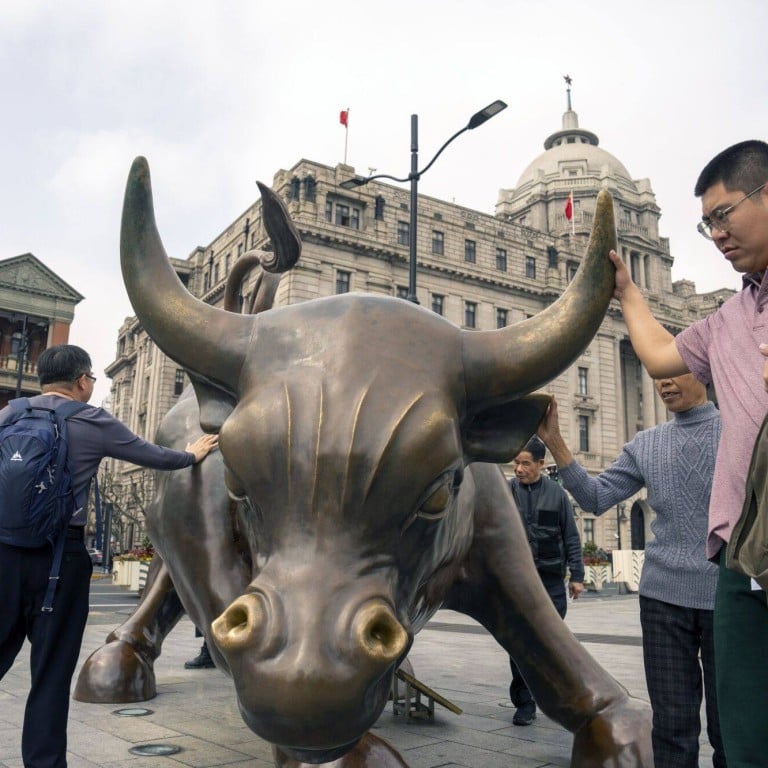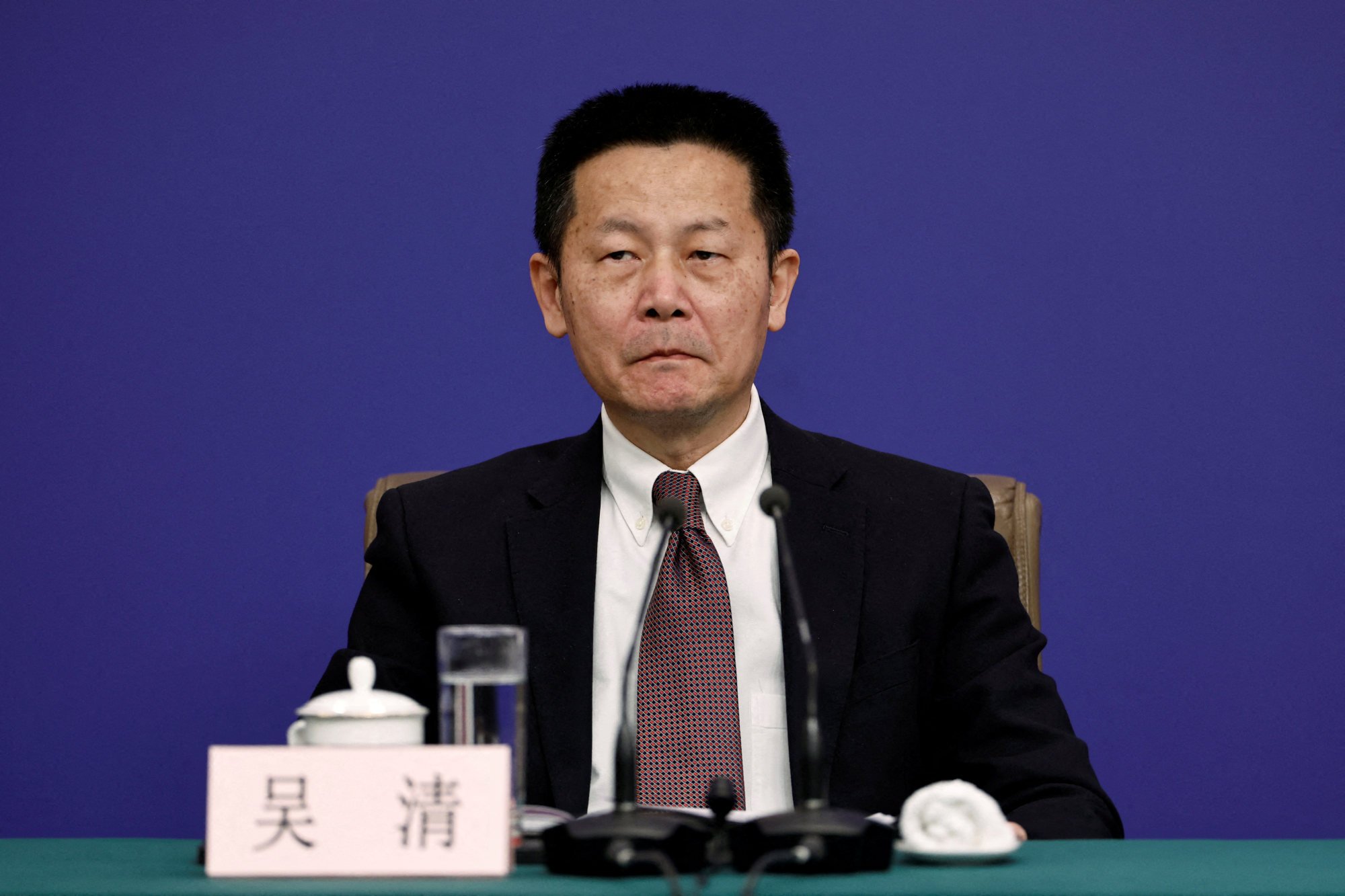
China’s ‘broker butcher’ regulator to lead effort to nurture mainland competitors for Morgan Stanley, Goldman Sachs
- The CSRC under Wu Qing will aim to develop 10 first-class brokerages, including two or three that can compete with top global names by 2035
- To do so, the CSRC may relax capital requirements for brokerages, enhancing their return-on-equity ratio and their valuations, HSBC says
China’s new top stock regulator Wu Qing, known as the “broker butcher”, will be responsible for nurturing 10 first-class brokerages including two or three that can compete with top global names such as Goldman Sachs and Morgan Stanley by 2035.

To achieve the brokerage goal, the document outlines 25 guideline points, running the gamut from corporate governance and risk control to staff management and the responsibility for maintaining market stabilisation.
“That will accelerate a supply-side reform in the industry,” said Xu Yishan, an analyst at Founder Securities. The industry’s leading players, such as China International Capital Corp (CICC), Citic Securities, China Galaxy Securities and Huatai Securities, are expected to outperform and scale up their businesses through mergers and acquisitions, as well as innovation, Xu said.
China’s ‘broker butcher’ vows to tighten IPO rules, curb false accounting
Citic Securities, mainland China’s biggest home-grown brokerage, is valued at US$40.8 billion, less than a third of the size of Morgan Stanley, which is capitalised at US$144 billion, according to Bloomberg data. Citic’s revenue for 2022 was about a fifth of Morgan Stanley’s.
Possible follow-through rules by the CSRC will probably include relaxation of the capital requirement for leading brokerages, which would enhance their return-on-equity (ROE) ratio and expand their valuations, according to an HSBC Holdings report on Monday. The regulator may also explore the possibility of cross-border brokerage services and support brokerage firms to finance and advise on the cross-border investments of Chinese enterprises, it said.
An index tracking more than 50 brokerages trading on mainland exchanges added 0.1 per cent this week, with industry leaders such as CICC and China Galaxy rising at least 2 per cent. The gauge has dropped 0.3 per cent this year, trailing a 4.3 per cent gain in the benchmark CSI 300 Index.
How to navigate China’s stock markets in a US presidential election year
China had 140 brokerages as of the end of 2022, with total assets increasing 4.4 per cent from a year earlier to 11 trillion yuan, according to the Securities Association of China.
A three-year market rout has crimped the profitability of the brokerage industry. Combined sales from brokering businesses, which make up the bulk of the sector’s revenue, dropped 12 per cent year on year to 77.6 billion yuan in the first nine months last year, data from Avic Securities showed. Profits for the whole industry fell 26 per cent to 142.3 billion yuan in 2022, according to the industry association.
Chinese watchdog denies plan to inspect a decade of listed firms’ financial data
More regulator-led consolidation could be in the offing for the industry, a trend that would benefit bigger brokerages, according to Haitong Securities.
“Bigger players are expected to make up for shortcomings and entrench their existing advantages through consolidation,” said Sun Ting, an analyst at Haitong in Shanghai. “That will lead to a higher concentration of the industry.”
The other three documents issued last week by the CSRC called for higher listing standards, for more oversight of the watchdog’s staff for disciplinary breaches and for publicly traded companies to boost their returns to shareholders.
“High-quality brokers like CICC and Citic could fare better versus peers under the new guidelines, on potential ROE expansions and market share gains amid consolidation,” HSBC said in its report. “The next area to focus on are the policies on attracting long-term capital to capital markets.”

